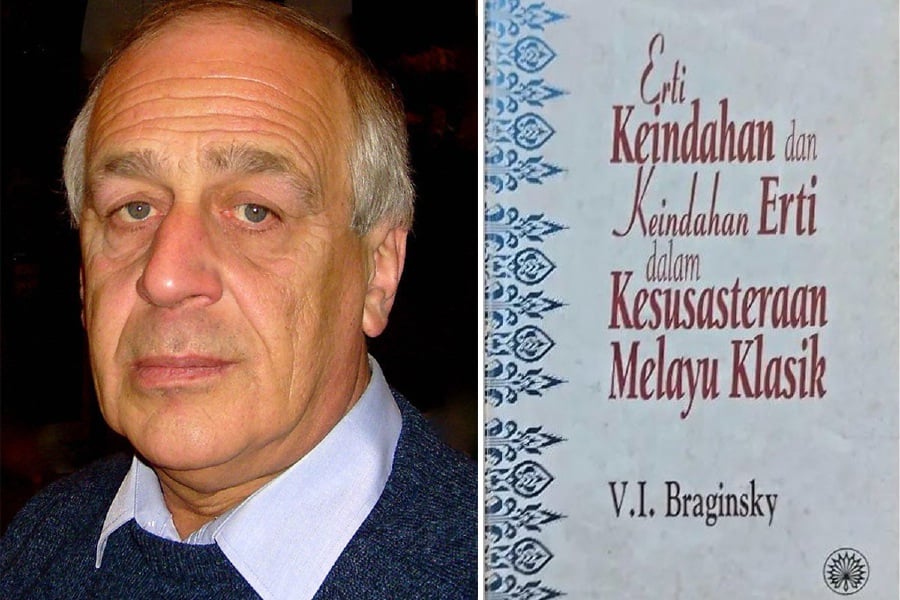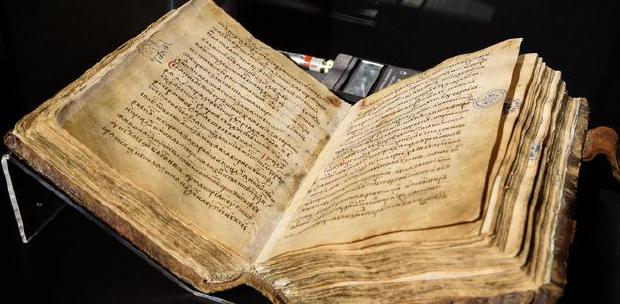OUTSTANDING orientalist Prof. Dr. Vladimir Braginsky, a scholar and leading researcher in the field of Malay classical literature, passed away on Feb 2.
His fields of interest included literary theory, medieval literature, Islam and Sufism in literature, translation of classical and modern Malay literary works as well as research of modern Malaysian and Indonesian literature.
Vladimir's greatest contribution was showcasing the role of the rich Malay literature as a bridge between other literatures, as well as revealing the sociocultural factors that resulted in the evolution of Malay culture.
Malay literature, in the course of its development, absorbed the literary experience of India, Iran, Arab countries.
Russian scholar, Lyubov Gorayeva, who works at the Institute of Oriental Studies in Moscow, said of Vladimir: "...it is difficult to find an expert comparable to V.I. Braginsky, both in terms of breadth of views and knowledge, as well as the ability to study and deeply understand a large amount of material, most of which have not been researched before."
Vladimir was born into a family of intellectuals and, from an early age, was exposed to a free and creative atmosphere that existed in his family.
His father, Iosif Braginsky (1905-1989), was a famous scholar and researcher of Persian literature, also well-known for his translation of Persian literature into Russian.
He was awarded the title of Member of the Academy of Sciences, the National Literary Prize, became a member of the Association of Soviet Writers, chairman of the Scientific Council of the Institute of Oriental Studies and editor-in-chief of the journal Nations of Asia and Africa (now Vostok-Oriens), the main magazine in the field of oriental studies in Russia.
Thus, Iosif was an example to follow.
The second factor that shaped Vladimir's personality and encouraged his interest in the Eastern world, especially classical Malay literature, was meeting Boris Parnikel (1934-2004) while studying at the Institute of Oriental Languages, Moscow Lomonosov University (now the Institute of Asian and African studies).
Although Lyudmila Mervart (1888-1965) is considered the founder of Malay studies in Russia, it was Boris Parnikel who started serious and innovative research in the field.
Vladimir and Boris frequently debated during the monthly meetings of the newly established Malay-Indonesian studies seminar in 1967, two years before Vladimir graduated from the Institute of Oriental Languages.
I myself entered the institute in 1965, when Vladimir Braginsky's name was already on the lips of students.
Just imagine, he could read the syair Perahu in Malay! And, not just read, but also study and translate it into Russian.
In addition to being an excellent researcher, Vladimir, like his father, was a talented and accurate translator.
If his teacher Boris, through his translation, made Hang Tuah 'speak' in Russian, then Vladimir made a similar miracle happen with the characters of other Malay literary works, both classic and modern.
In 1972, as an editor, he managed to publish a collection of Malay and Indonesian folk tales titled Tongkat Wasiat. In 1975, the translation of two works of old Malay prose, Hikayat Inderapura and Hikayat Andaken Penurat, were brought together in a book titled Taman Burung Merak.
Finally, 1982 marked the publication of the anthology About the Brave and the Wise, containing excerpts from 24 works of classic Malay prose, which included Malay versions of the Mahabharata and Ramayana.
The translation of poems by modern Malay poets (for the first time in Russia) by Vladimir in the 1970s was not only authentic in terms of content, but also rhymed in accordance with the Russian literary tradition, thereby allowing the translation to be considered a part of Russian literature.
The poems included A. Samad Said's Semarak Api and Di Bawah Bintang Mengerdip, Usman Awang's Pak Utih, Latiff Mohidin's Segenggam Pasir and Pohon Cemara, as well as Baha Zain's Topeng-Topeng and Sketsa Anak Kecil.
In the mid-20th century, Australian researcher A.H. Johns stated that "the history of Malay literature has not been written". But thanks to the tireless efforts of Vladimir, that statement needs amendment.
The history of Malay literature has been written!
Nevertheless, the realm of Malay literature is like an endless ocean, many aspects of history await its study.
Fortunately, Vladimir, while working at SOAS, left behind many talented students, including those from Malaysia, who have the ability to continue his noble work.
Pogadaev, writing from Moscow, is a former lecturer at Universiti Malaya





